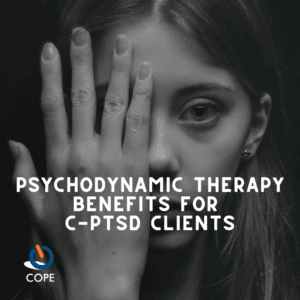Emotional neglect is a subtle yet profound form of abuse that can leave lasting scars on individuals. Unlike physical abuse, its effects may not be immediately visible, but they can echo throughout a person’s life, shaping their relationships, self-esteem, and emotional well-being. This post delves into the intricate web of emotional neglect, exploring its impact on individuals and how psychoanalytic psychotherapy offers insights and approaches to address its lasting effects.

Understanding Emotional Neglect
Emotional neglect often occurs when caregivers fail to provide the emotional support, validation, and responsiveness that individuals need for healthy development. This can manifest in various forms, including caregivers being emotionally unavailable, dismissive of a child’s emotional needs, neglectful in providing a nurturing environment or even explicit criticism or humiliation when attempting to express our feelings. Unlike overt forms of abuse, emotional neglect often presents in cases of what is not said or done, leaving individuals feeling unseen, unheard, and invalidated.

Consequences of Emotional Neglect
The consequences of emotional neglect can be profound and far-reaching. Individuals who experience emotional neglect may struggle with low self-esteem, difficulty forming and maintaining relationships, feelings of emptiness or numbness, and challenges in regulating emotions. They may develop coping mechanisms such as self-isolation, people-pleasing, or overachievement to compensate for the lack of emotional support they received in childhood.
Impacts of Emotional Neglect on Mental Health
Emotional neglect appears to have impacts on mental health. Children who endure various forms of mistreatment may exhibit compromised physical and psychological well-being in adulthood, irrespective of cultural or geographical distinctions. Individuals who undergo emotional abuse during childhood often display symptoms such as:
• Feelings of despair
• Diminished self-worth
• Decreased social support
• Lower life satisfaction
• Alterations in stress response systems at a neurobiological level
• Structural as well as functional deficiencies in brain activity


They also face an elevated likelihood of developing psychiatric disorders like:
• Depression
• Anxiety
• Eating disorders
• Suicidal tendencies
• Psychosis
• Substance abuse
These symptoms frequently manifest in childhood and persist into later stages of life.
Notably, a growing body of research from diverse socioeconomic settings suggests that emotional abuse may have the broadest negative impact on mental health among all types of childhood maltreatment. Presently, there is limited data contrasting the mental health repercussions of emotional neglect versus physical neglect. Nevertheless, both emotional abuse and emotional neglect appear to serve as transdiagnostic risk factors for psychiatric disorders, particularly anxiety and depression. This could possibly be attributed to dysfunctional processing of emotional information related to oneself and others, coupled with altered utilisation or reduced availability of neural resources.

Examples of Emotional Neglect
• Punishments for expressing negative emotions such as sadness, like being told to isolate oneself or remain silent.
• Invalidation of one’s feelings or experiences, often through phrases like “You’re too sensitive,” or “Don’t worry about it,” which undermine the importance of those emotions and build shame.
• Disregard or neglect of feelings due to the caregiver’s self-focus or preoccupation with other matters.
• Withholding or refraining from displaying affection or positive emotion, regardless of whether it is explicitly requested or not.
• Failure to address or resolve emotional stress in situations involving the child.
• Failure to acknowledge challenging emotions, often stemming from the parent’s own difficulties in recognising or processing such emotions.

Getting Better with Therapy
Psychoanalytic psychotherapy offers a nuanced understanding of emotional neglect, viewing it within the context of early attachment experiences and their impact on personality development. Through exploration of unconscious processes, therapeutic rapport, and the therapeutic relationship, psychoanalytic therapy aims to unearth the underlying dynamics of emotional neglect and its influence on current patterns of relating and coping.
In therapy, individuals are encouraged to explore their early experiences and relational patterns, which may aid them to gain insight into how emotional neglect shaped their sense of self (i.e. self-concept, self-efficacy, and self-esteem) and their interactions with others. Therapist may use empathic attunement and interpretation to aid clients in making meaning of their experiences and through this heal emotional wounds and cultivate healthier ways of relating and coping.
Psychotherapy aids in shedding light on the invisible wounds of emotional neglect and may offer a compassionate space for exploration and healing. Through this there is an immense potential to facilitate profound transformation and growth. It is through acknowledging and addressing these unseen wounds that individuals can begin to reclaim their sense of worth, forge authentic connections with others and self, and embark on a journey towards wholeness and self-compassion.
Edited by Anesu Manyowa.
COPE Centre of Psychological Enrichment
Visit us at 2 Lawrence Avenue, West Perth
📞 (08) 6556 6460
📧 [email protected]
Our services About – Cope Centre
Follow us here Facebook



Lorem ipsum dolor sit amet, consectetur adipiscing elit. Ut elit tellus, luctus nec ullamcorper mattis, pulvinar dapibus leo.